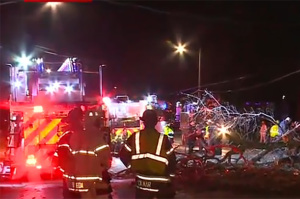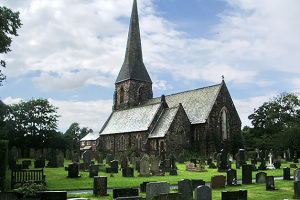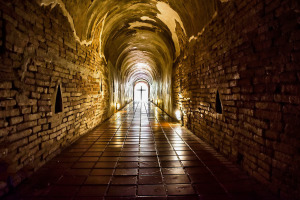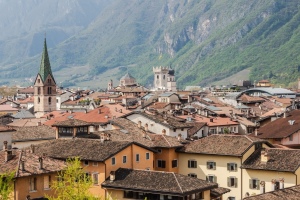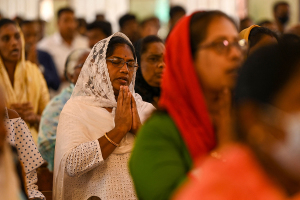Life as a Christian in the Middle East: Insight Into Challenges, Growth of Christianity Amid Intensifying Persecution
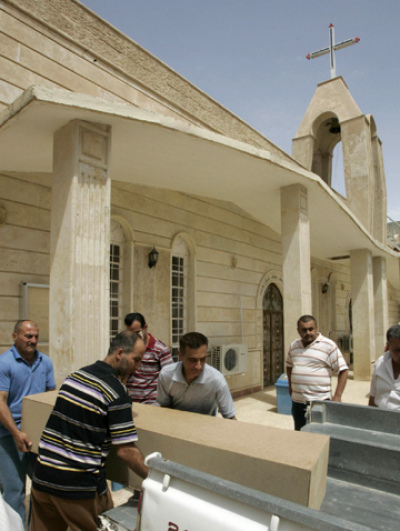
Todd Nettleton is a spokesperson for Voice of the Matyrs, an advocacy group for persecuted Christians around the world.
Here he speaks to The Christian Post to offer an insight into the situation in Pakistan, Syria, Egypt and Iraq as well as the Middle East as a whole, and what it is like for Christians in the region.
ON SYRIA
What is going on in Syria? What unique challenges are Syrian Christians facing?
I just returned from Lebanon where I attended a conference of Syrian church leaders. Two things we came away with from the trip are that the church in Syria is growing. One of the pastors, who used to have seven services every week, now, has 12 services every week. There is so much hunger, so many people coming to Christ and coming into the church.
The bad news, though, is with that growth there is an increase in persecution. We see Christians being targeted, not only Christians from Muslim backgrounds but also the traditional Christian community in Syria. There are Christian villages where literally rebels have come in, they've announced from loudspeakers, "Christians, you have 48 hours to get out if the village or else," and literally the Christians pack what they can carry and they leave their homes, leave their villages, because they're in fear for their lives. There is definitely intense persecution as well.
What is the true relationship like between Christians in Syria and President Assad?
The interesting thing is none of the Christians that we talked to wanted America to bomb Syria. They did not want that to happen. In their mind, they saw it as being directly in support of the rebels. They fear rebels more than they fear Assad's regimen, not to say that Assad's regime is perfect or even good, but the Christians there say it is much better than what the radical Sunni rebels would be.
One of the leaders we met with said, "When we hear that a Christian has been taken, we pray that the Christian has been taken by the government, not by rebels. There's some chance we'll see them alive again if there were taken by the government, but if they were taken by rebels, they'll be killed."
While they're not huge fans of Assad, they definitely think he's the lesser of two evils when it comes to him or radical Sunni rebels taking control of the country.
I think Assad - and we didn't directly discuss this in Lebanon - Assad traditionally has not been harsh on the Christian church. There has been persecution there, but I think even then they saw that Assad, an Alawite, presented a better situation, than if a Sunni majority took over the country.
What is the future for Christianity in Syria?
Short term is pretty bleak. Thousands of Christians are leaving Syria, saying there is no future for them here and that they have to go to Lebanon, Europe, the West. I think that in the short term there are not a lot of hopeful signs. However, we do see Christians choosing intentionally to stay for ministry and outreach.
Some of the church leaders we met with were meeting in Lebanon for training about how to help people deal with trauma, and they were saying, "This is just what we need in this time."
They want help the people there, not just the church, but all the people in Syria that are undergoing so much trauma, and they are excited to be equipped so they can minister and help. They were saying, "This is a great time for ministry. We can help through the power of God and make an impact of Christ and kingdom."
ON PAKISTAN
What is going on in Pakistan? What unique challenges are their Christians facing?
We've heard from some of our contacts in Pakistan, particularly, with regard to the bombing of the church in Peshawar. Just a terrible tragedy. A very large attack, some are saying, when all the death toll is counted, it will be the largest attack on Christians in Pakistan. The church is trying to recover. One of the pastors that my co-workers talked to had already done five funerals yesterday for those killed. The Christian community has really been rocked by this attack and the loss of life.
They are looking at the government, looking at the police, saying, "How can this happen? You know churches are targeted. This is Peshawar, it is a hotbed of radical Islamic activity. Why wasn't there more protection, or more police presence there?
Right now, our prayers are with that particular church. So many families affected with loss and injuries. Our prayers are with them; that they will recover from this and that the Lord will somehow use this to bring good things to Pakistan.
What is living in Peshawar like for Christians?
It is in a radical Islamic part of the country, up close to the Afghan border, sort of in Taliban country. The Christians there know the risk…that we could face this type of thing. They thought they were okay going to church. There apparently were two police officers there to provide protection.
But it seems very clear that this bomber or bombers wanted maximum body count. They waited until service was over, people milling around, apparently there was a food distribution going on so people were lined up receiving food, so they really wanted the maximum body account. The last report said 81 confirmed dead. Our contacts say that when the dust settles the death toll will be over 100.
Is there anything else Americans should know about Christians in Pakistan?
Just that we need to pray for Pakistani Christians, all the time, because they are always targeted. The other thing that I would share with regards to Pakistan - as I hope it will be a sliver of hopefulness out of this situation - is that there have been a couple of government leaders that have spoken out against the attack.
The prime minister has said, "This is not acceptable under Islam. This is not acceptable to attack women and children."
So those words are pretty to say in the hours after a big attack, but what we hope to see in the future is more protection and more movement to say, "This is not a part of Islam. This is not acceptable." There are some government leaders who are saying the right things right now, but we wait to see what their actions will be.
ON EGYPT
What is going on in Egypt? What unique challenges do Christians in Egypt face?
It is very interesting what is happening in Egypt. Just this week, a court ruled that the Muslim Brotherhood is illegal. That its activities are illegal. It is not qualified as an NGO. It will be interesting to see what that means for the Church, what it means for the Muslim Brotherhood and if it has an impact on persecution.
What we've seen in the last couple of months since Mohammed Morsi was removed from power by the army, we've seen churches burned, Christian homes attacked, and supporters of the Muslim Brotherhood have painted Morsi's removal as something to blame on Christians, as if that small minority of Christians in Egypt had the power to actually remove Morsi from office. Yet Morsi's supporters have blamed the Christians and have attacked churches and Christian homes as a way of getting back at them.
What we see in Egypt is a government that is trying to create stability, security for the people in Egypt. We have seen lots of Egyptians flee from Egypt, as they have no future there. So it will be interesting to see what that new court ruling means, and how it affects life on the ground.
Can you comment on reports of the police and the military in Egypt refusing to step in to stop attacks on Christians?
This is very concerning to us, very concerning to Christians there in Egypt. Think about it from an American perspective, who would you call if your church was attacked? What happens if police decide not to come or if the police support attackers, or the police are just standing by, watching the attack take place?
That's obviously unacceptable, and there's a sense of fear and hopelessness for the church in Egypt. Whom do we call? If the police do not stand up for us, if military does not step in and protect us, there no one to call on except for God.
It's actually documented. There are photographs of the attacks where you see people in military uniforms.
We've also heard reports of cases where the "jizya tax" has been put in place. Basically, it's a tax that you pay the Muslim government to literally redeem your lives. The government would say, "We could kill the captives, but instead you are going to pay this tax to us."
















